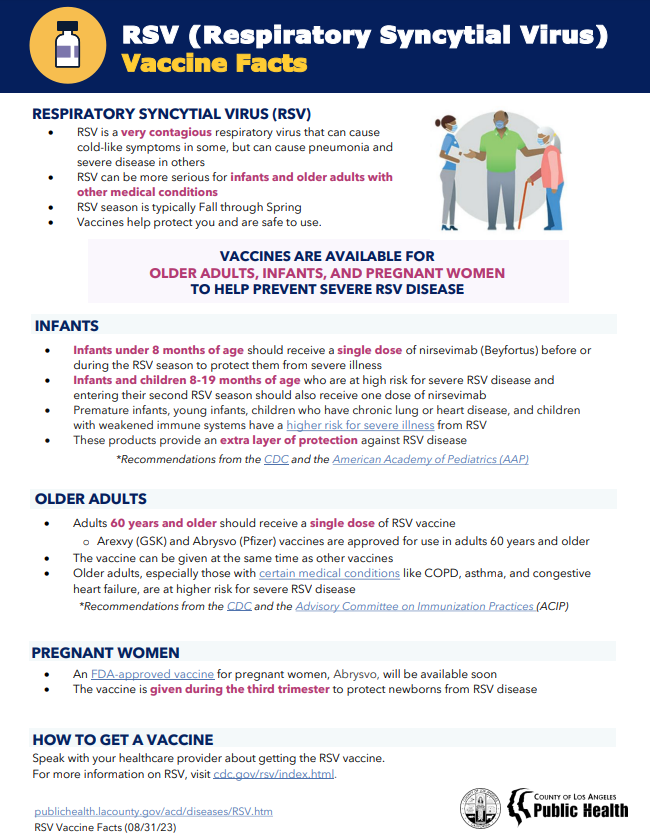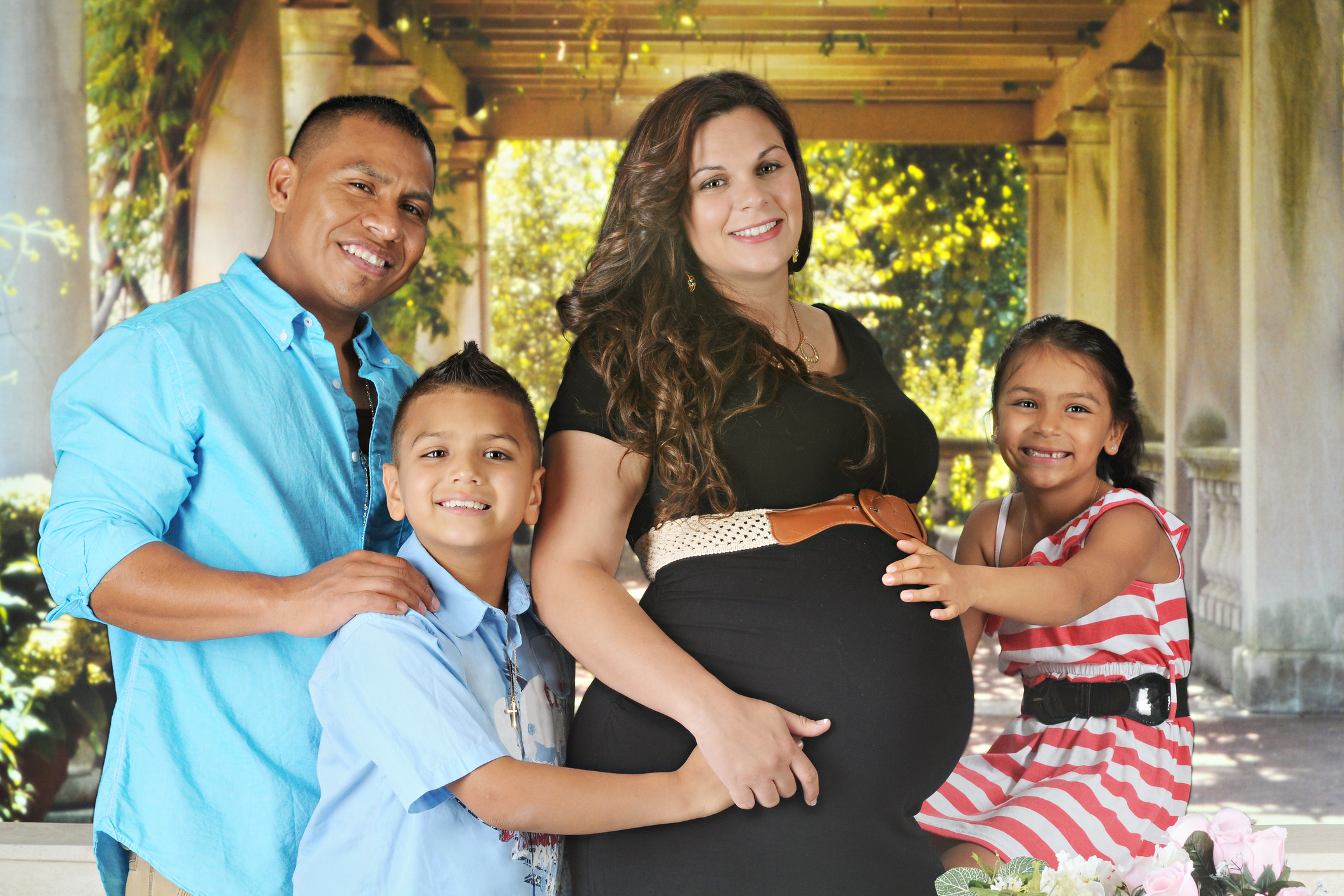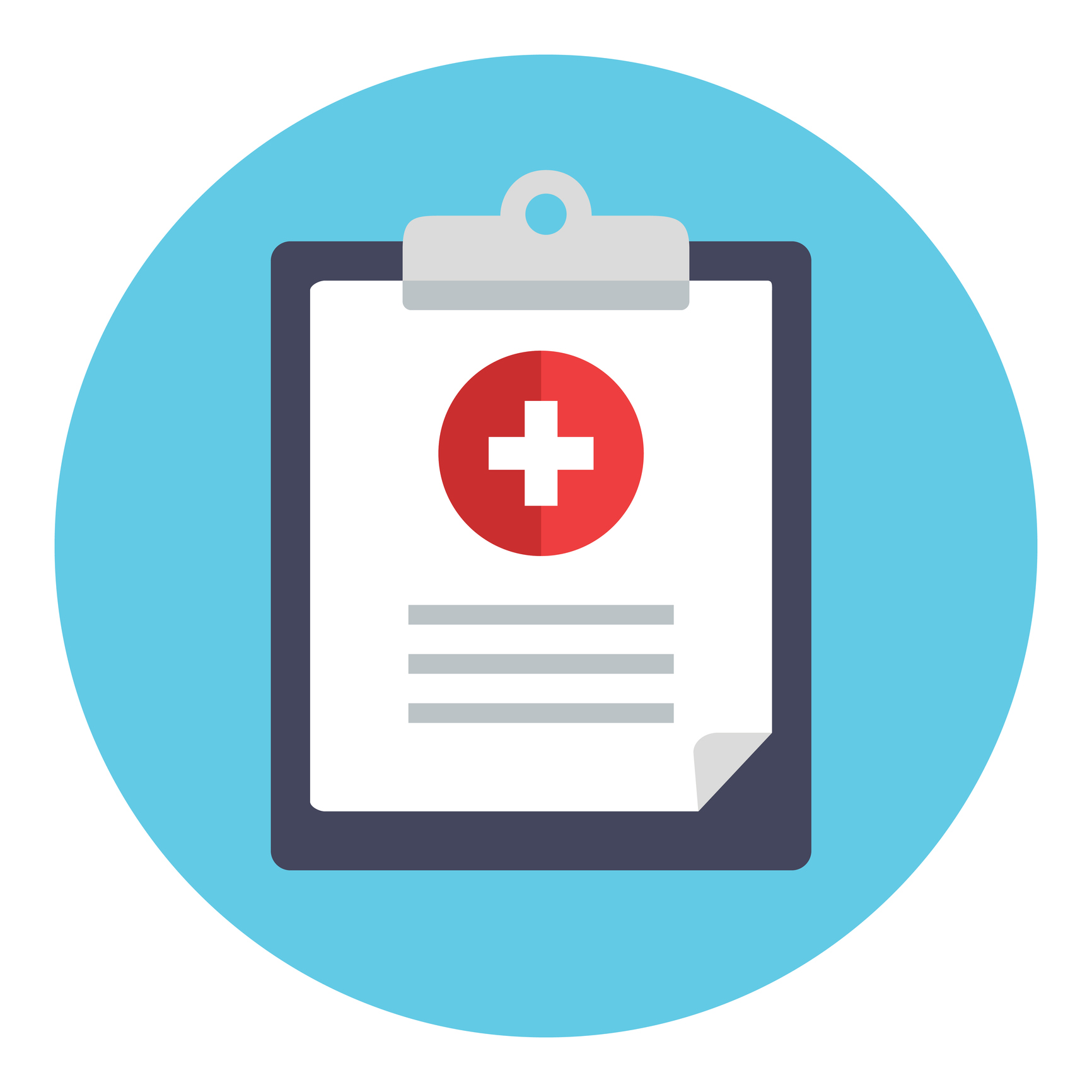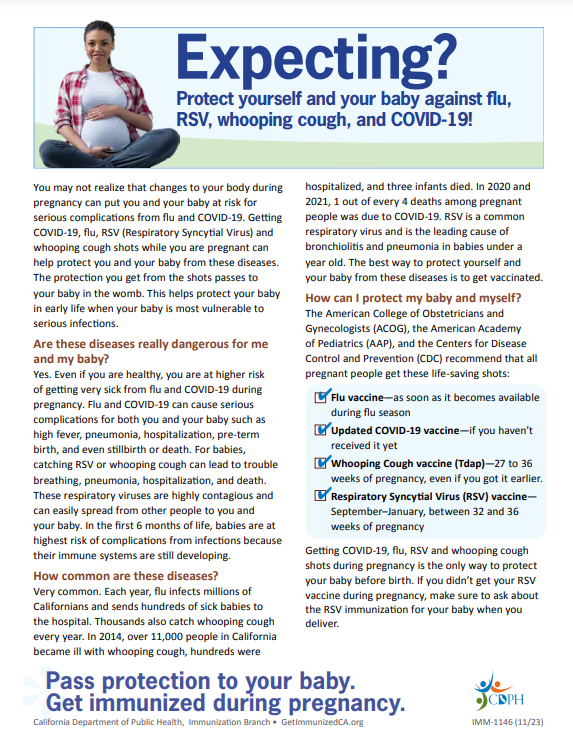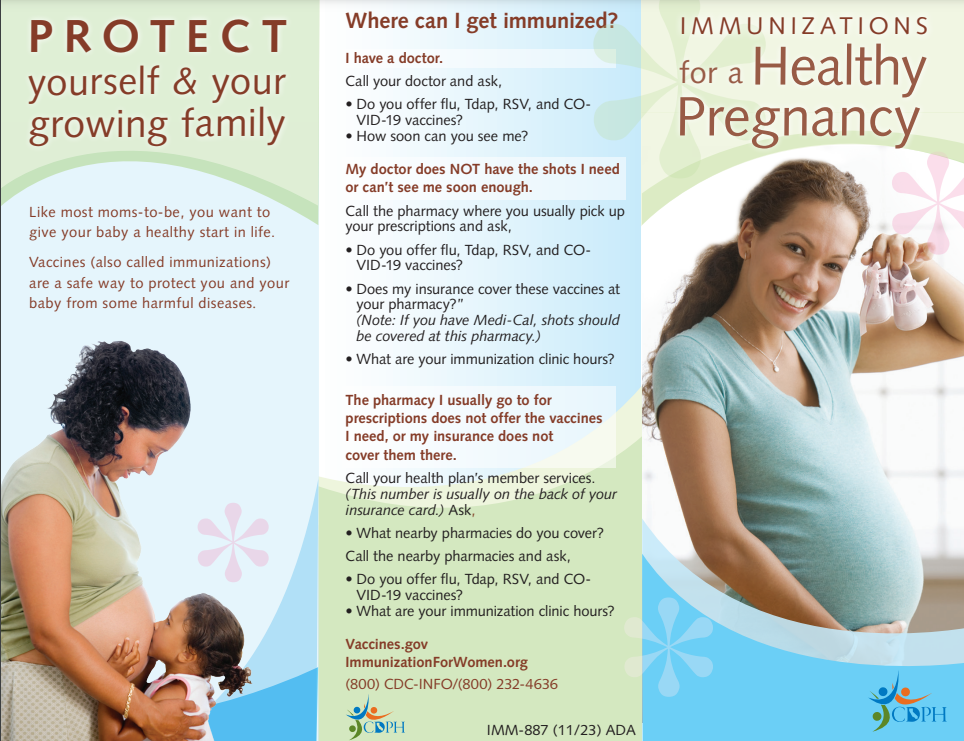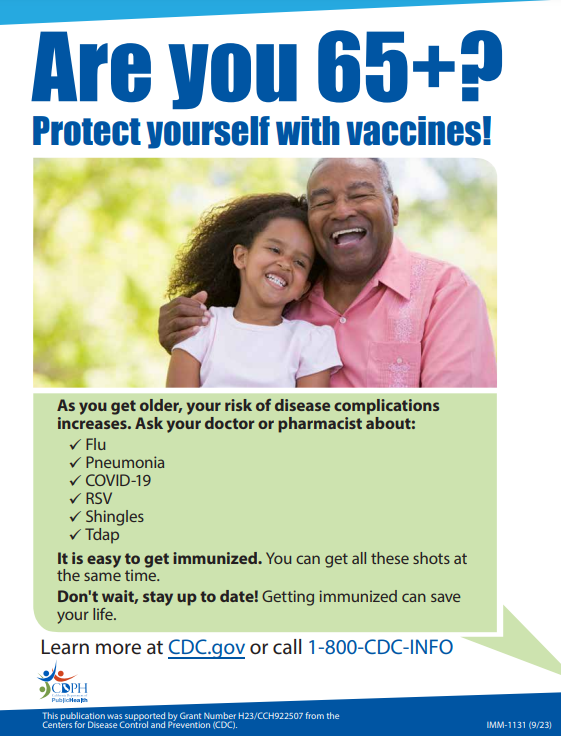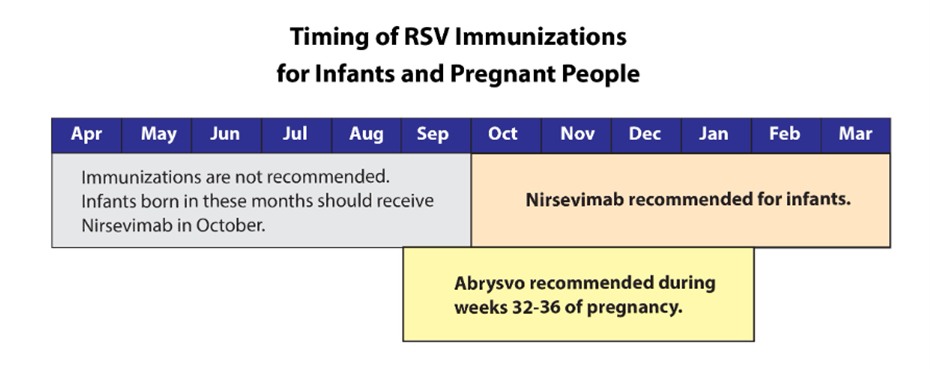Each year in the United States, prior to vaccines, RSV
resulted in approximately:
- 2.1 million outpatient (non-hospitalization) visits among children younger than 5 years old.
- 58,000–80,000 hospitalizations and 100-300 deaths among children younger than 5 years old.
- 60,000–160,000 hospitalizations and 6000-10,000 deaths among adults 65 years and older.
RSV infection can cause a variety of respiratory illnesses and symptoms in infants and young children. It most commonly causes a cold-like illness but can also cause lower respiratory infections, like bronchiolitis and pneumonia.
In adults, symptoms are usually consistent with an upper respiratory tract infection, which can include rhinorrhea, pharyngitis, cough, headache, fatigue, and fever. Milder illness in adults typically resolves in 1–2 weeks.
However, RSV can also cause severe pulmonary disease and hospitalization in older adults and those with underlying conditions.


